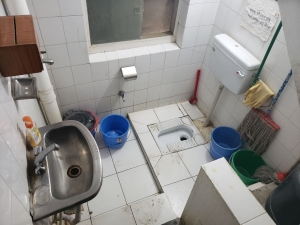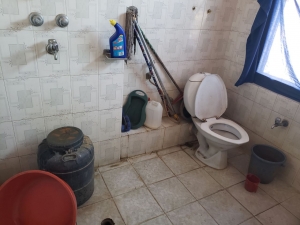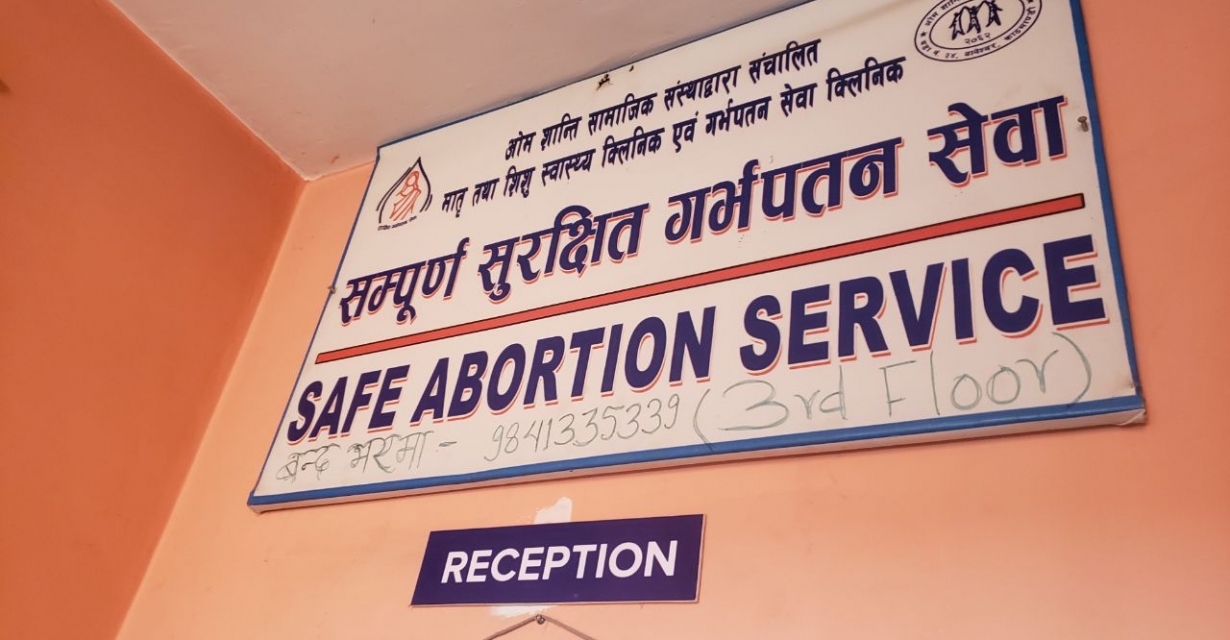After the legalization of abortion in September 2002, Nepal passed the procedural order in 2003, giving way to the first ever Comprehensive Abortion Care Service to be disseminated from the Kathmandu-based Maternity Hospital in March 2004. The law grants women the right to a legal abortion on the following grounds:
- Up to 12 weeks of gestation for any woman;
- Up to 18 weeks of gestation in case of rape or incest
- At any time during pregnancy, with the advice of a medical practitioner or if the physical or mental health or life of the pregnant woman is at risk or if the fetus is deformed and incompatible with life.
Though abortion is legal in Nepal under National Safe Abortion Service Policy 2004, there are various hurdles that prevent pregnant women from seeking legal and safe abortion services. Generating awareness as well as talking openly about it could help spread the word.
According to Nepal’s 2011 Demographic and Health Survey, only 38% of women of reproductive age were aware of the legal status of abortion. Awareness of legal abortion was inversely related to wealth, with only 22% of women in the lowest wealth quintile recognizing the legal status of abortion. Abortion is a still a sensitive topic in Nepal as it is plagued with taboos. Moreover, the status of WASH at abortion centers is barely known to the public.
Ipas Nepal, a non-governmental organization, has been providing technical support to the Ministry of Health to initiate and expand Safe Abortion Services in the country since its legalization. Program Advisor at Ipas, Madhabi Bajracharya said, “Access to clean water is crucial not only at abortion centers but also at all health care facilities. But the government is not concerned about ensuring WASH anywhere. Neither the government nor any non-governmental organization has ever approached us to carry out training on importance of WASH at abortion centers.”
Bajracharya added that clean running water and sanitary toilets are a must at abortion centers for prevention of infections and for sterilization of medical equipment.
Comprehensive abortion care, including manual vacuum aspiration (MVA) and medical abortion (MA) services are available in all 75 district hospitals and at over 50 percent of Public Health Care Centers, and yet authorities concerned are hesitant to provide administrative information about how the centers work. The Department of Health was reluctant in giving out information about the status of WASH at government owned abortion centers. Several attempts to contact the Director General at the Department of Health went unanswered.
Moreover, Marie Stopes is one of the providers of sexual and reproductive health services in Nepal. Though the organization boasts in its website about its extensive services through as many as 36 centers across country, Marie Stopes said they “can’t provide any information about the status of WASH” at their centers.

The toilet at Marie Stopes in Chuchhepati, Kathmandu.
Meanwhile, Mithilesh Prasad Shah, Program Coordinator at Safe Abortion Service, said that if more people were informed about abortion centers and how they work, it would have been easier to extend sexual as well as reproductive health services. Safe Abortion Service is an NGO dependent on donations so they are usually short of funds. “We use mineral water jars to sterilize medical equipment and boring water in the toilet. We don’t know how clean or safe the water jars are, but as the government has approved them to be safe we believe the government,” he said.
All centers of Safe Abortion Service buy water with the donation they receive, so the income is never fixed and the fund for water can run out at any time. “We have been running this organization for the past 15 years and the government has never approached us to talk about the status of WASH. We think of approaching the government on our own, but then we realize the poor condition of other big government hospitals and keep the thought to ourselves,” said Shah.
According to an assessment conducted by WaterAid Nepal and Nepal Fertility Care Center in 2015, all (20) health institution (both public and private) had arrangement for water facilities although regular supply of drinking water was found in only 90% of health institutions. Similarly, while only 55% of the health institutions had provision for drinking water treatment, none of the health institutions had a mechanism for monitoring of drinking water quality in any way. Drinking water facilities in waiting areas was observed in only 30% of the total health institutions, with only 20% health institutions having drinking water points accessible to patients/care takers. Likewise, only 45% health institutions had accessible drinking water points for staff.
Shah further mentioned that a water treatment plant had become an unavoidable necessity to Safe Abortion Service, but the lack of budget as well as skilled manpower has tied his hands.
“The government has stopped providing us Depo-Provera as well as other contraceptives since the last couple of years. These contraceptives are supposed to be provided free of cost to the public but the Health Ministry has deprived us of such facility. This discourages people from visiting safe and authorized health care centers for medical help,” Shah added.

The toilet at Safe Abortion Service in Shantinagar, Kathmandu.
Restricted access to information regarding the status of WASH at government run as well as NGOs run abortion centers only puts the system under scrutiny. Transparency, awareness and health literacy are vital in order to make the services accessible to people of all strata.

The toilet at Safe Abortion Service in Shantinagar, Kathmandu.



